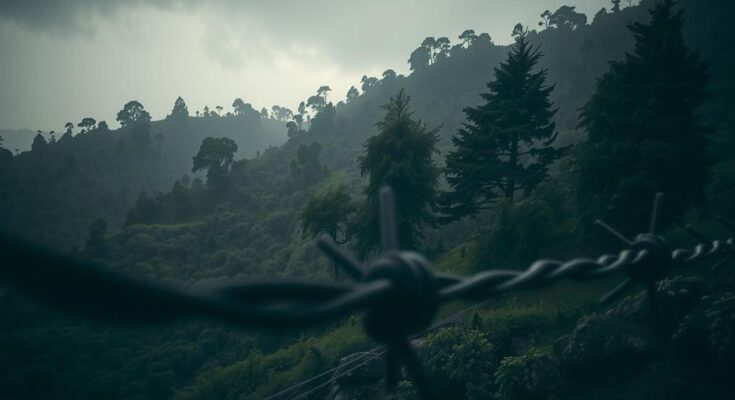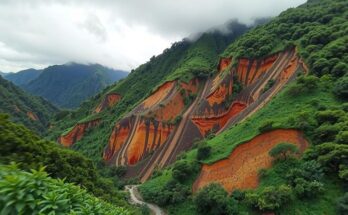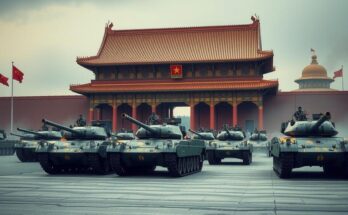The M23 rebels have regained significant territory in eastern DRC, including Goma, amid rising ethnic tensions and resource competition. Their resurgence has led to increased violence, fatalities among peacekeepers, and mass displacement. The DRC’s rich mineral resources play a pivotal role in the conflict, and allegations persist regarding Rwandan support for the M23, complicating peace efforts.
The M23 rebels, primarily composed of ethnic Tutsi former Congolese soldiers, have intensified violence in the Democratic Republic of the Congo (DRC) by claiming control of Goma, a crucial city in the eastern region. This resurgence is linked to underlying ethnic tensions and a struggle for the DRC’s significant mineral resources, resulting in the death of at least 13 peacekeepers and displacing approximately 400,000 people since the beginning of the year, according to UN estimates.
Currently, the situation remains precarious as the M23 rebels have demanded the Congolese government forces surrender their weapons by an imminent deadline. Reports indicate that upon entering Goma, some local residents expressed a complex mix of fear and support towards the armed groups, reflecting the deep-seated anxiety among civilians in this conflict-ridden area.
The eastern DRC is characterized by a multitude of rebel factions, a legacy of two regional wars stemming from the aftermath of the 1994 Rwandan genocide. M23’s name derives from the March 23, 2009 peace agreement, which it claims the Congolese government has violated. Despite being briefly expelled in 2013, M23 resurfaced in 2021, allegedly enjoying renewed backing from Rwanda.
The ongoing conflict in the DRC has deep historical roots, intertwining ethnic strife primarily between Tutsis and Hutus, and competition for valuable minerals such as cobalt, gold, and coltan. These resources are crucial not only to the local economy but also have significant implications for global industries, especially in technology and green energy sectors. Over the years, violent confrontations have resulted in vast humanitarian crises, with millions displaced and numerous civilian casualties. Rwanda’s alleged involvement in supporting M23 underscores the geopolitical dimensions surrounding this conflict, linking it to regional power dynamics and economic interests. This complexity furthers the detriment of peace efforts and complicates international humanitarian responses. The presence of foreign military forces and interventions, including the long-standing UN peacekeeping mission, has been met with criticism regarding their efficacy and operational restrictions against armed groups in the area. Understanding the interplay of these factors is crucial for grasping the gravity of the conflict as well as for devising effective solutions for the local populace and the international community involved in addressing this humanitarian crisis.
The situation in the eastern Democratic Republic of the Congo involving the M23 rebels is characterized by a re-emergence of conflict fueled by ethnic tensions and competition over rich mineral resources. The international community, while engaged, faces challenges in balancing military and humanitarian responses effectively. The ongoing crisis continues to unfold against a backdrop of historical grievances and geopolitical interests, highlighting the urgent need for sustainable peace and reconciliation efforts in the region.
Original Source: theweek.com




